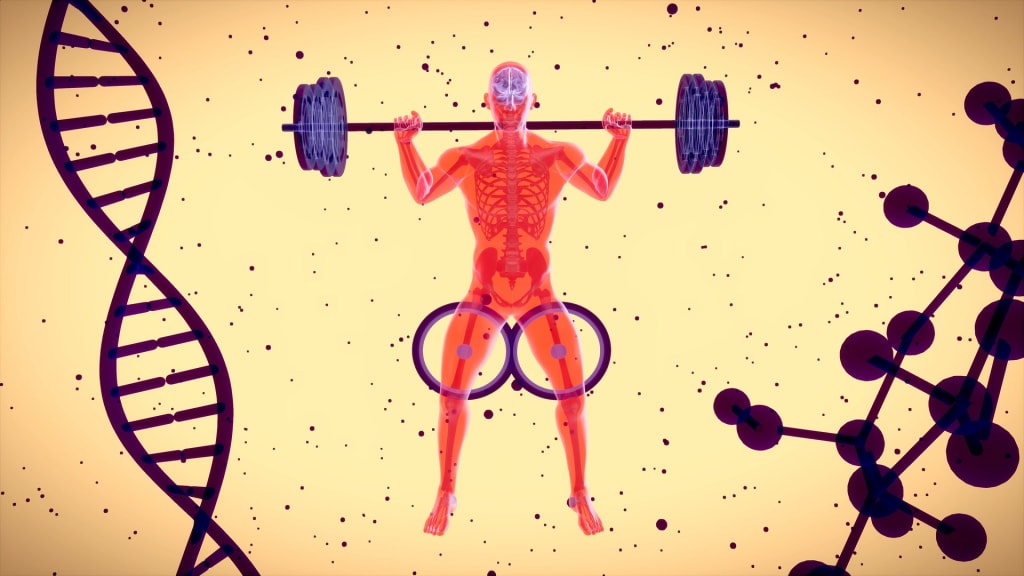5 Tips for Living a Long Life
Ideas For Longevity

Most of us want to live a long and healthy life. And, while scientists used to believe that genetics and family history were the most important factors in determining a person's longevity, they are now discovering that there are many more pieces to the puzzle.
Aside from genetics, research shows that other factors such as environment, lifestyle choices, socioeconomic status, mental health, and community can all affect your lifespan. Because some of these factors are obviously impossible or more difficult to control than others, we wanted to learn more about the ones that we can.
Michael Roizen, M.D., author of the Great Age Reboot and founder of the Reboot Your Age program, gives his advice on the best practices for longevity and information on healthy aging,
Change your mindset.
According to Dr. Roizen, not enough people understand how their attitude and daily life choices can affect their longevity.
"The most common mistake is believing that your choices make no difference," says Roizen. "However, making healthy choices early and consistently allows you to enjoy good health and a longer life."
He also mentions that your mindset can change the genes in your body. "We know from a large amount of data collected since the Human Genome Project's completion that you control over 80% of whether your genes are turned on and making proteins, or turned off and not making proteins."
Similar findings in other studies suggest that your brain and thought patterns can alter your genes. As Dr. Roizen describes it, "you are a genetic engineer for your own health."
Of course, positive thinking will not guarantee longevity for everyone, but the point is that your mental state affects your physical health, so having a positive mindset is a great place to start when it comes to aging in a healthy way.
Only eat food you love and that loves you back.
"Food is a relationship, just like a marriage—you should only eat food that loves you back," Dr. Roizen says. While this is dependent on your specific needs, Dr. Roizen offers some suggestions for great foods for longevity. "Try drinking your coffee black, without cream or sweeteners, and brewed through a filter, and enjoy avocados, salmon, and blueberries."
Looking at the Blue Zones, which are areas around the world with the highest concentrations of centenarians, you'll notice that healthy eating is a big part of their longevity equation. Although each region has its own distinct cuisines and specialties, some patterns and correlations emerge—a typical Blue Zones diet is high in fiber, healthy fats, and plant-based foods (lots of fruits and vegetables), and low in processed foods.
Try the fasting-like diet.
Fasting-mimicking, according to U.S. News, is a method of reaping the benefits of fasting without having to stop eating. This five-day "fast" can be done once a month for three months (and during those five days, you should be consuming at least 70 ounces of water per day).
Because this is a very specific method of fasting, you should consult with your doctor before attempting it. However, Dr. Roizen believes that for some people, the so-called fasting-mimicking diet may be beneficial to their longevity.
"You can help regenerate your telomeres (DNA structures essential to the cellular aging process) by fasting for five days each month," he says. "This entails starting with a low-protein, low-simple-carb diet of about 1,000 calories on day one, followed by 750 calories for the next four days, before returning to a Mediterranean-style diet on day six."
Teach your brain to think quickly.
Dr. Roizen believes that it is also critical to focus on your brain health as you age. "You want to sharpen your mind. Two studies found that 70- to 75-year-olds who played speed-of-processing games for just 18 hours per week for ten years had a 25% lower risk of dementia "Roizen says
Another study, published in Scientific Reports, used Cognitive Mobile Games (CMGs) to examine the scores of people aged 60 to 80. Those who played the CMGs improved their scores after 100 sessions, according to the participants.
Manage your stress while cultivating your posse and purpose.
Dr. Roizen adds that stress management, finding your purpose, and being involved in your community are all important aspects of living a longer life. According to one Harvard study, being part of a community and feeling happy may be more important to living a long life than your genes.
Researchers discovered that these characteristics are not only practiced, but also highly valued in every Blue Zone region. According to Blue Zone research published in the American Journal of Lifestyle Medicine, these areas practice a "downshift" to reduce stress, which can take the form of meditation, prayer, happy hour with friends, an afternoon nap, or visits with neighbors.
People in Okinawa, Japan (one of the five Blue Zones), value community through moai, or life-long circles of friends, whereas people in Nicoya, Costa Rica, value their pan de vida, or reason for living. These practices may not appear to contribute to a longer life at first glance, but experts say they do.
About the Creator
Willie Wun
I am a senior who is very keen on health and longevity issues and would like to share such knowledge with whoever is interested in these areas. Please SUBSCRIBE if you find the information useful and I can be motivated to share them daily






Comments
There are no comments for this story
Be the first to respond and start the conversation.